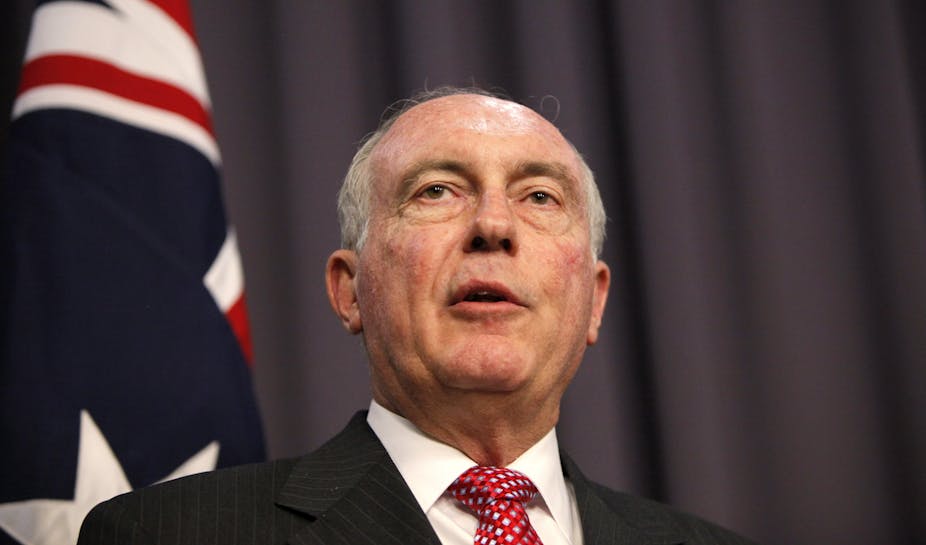The Australian Election Study has found that Tony Abbott is the most unpopular leader to win an election since the ANU began to track public opinion in 1987.
The study, done after each election, confirmed how disillusioned voters are – the leaders broke records in unpopularity.
For the first time since the study began, no leader scored above a mean of 5, on a 0 to 10 scale, with 0 for strongly dislike and 10 for strongly like.
The best rating leader was the one least seen by most voters – the Nationals’ Warren Truss, who had a score of 4.34. He was followed by Abbott with 4.29.
Julia Gillard scored 4.04, while Kevin Rudd did only marginally better with 4.07. Greens leader Christine Milne was the least popular, on 3.81.
The study, Trends in Australian Political Opinion, was a postal survey of nearly 4000 voters, and conducted by Ian McAllister and Sarah Cameron, from ANU’s school of politics and international relations.
Cameron said the results showed Australian politicians “are less popular than ever”.
“Tony Abbott, on average, is less popular than any prime minister in the history of the study,” although he compared favourably to the former Labor leaders after the election.
In 1987 then PM Bob Hawke had a rating of 6.23; the 1993 study found Paul Keating on 4.73; in 1996, John Howard was on 5.73. Howard never slipped under 5 at the subsequent elections and rated 5.14 in the study of the 2007 election, which he lost. Rudd rated 6.31 in 2007 and Gillard 4.89 in 2010.
Despite the gap in popularity between Rudd and Gillard consistently shown in media polls between 2010 and 2013, which led to Rudd being restored to the leadership, this post-election survey found voters making little distinction when asked how much they liked or disliked party leaders.
Abbott’s popularity did not change significantly between 2010 and 2013, although he became relatively more popular compared to Gillard’s and Rudd’s decline in popularity.
The study found the most important election issue was economic management (28%). While boat arrivals was a high profile issue in the run up to the election, refugees and asylum seekers rated only 10% when people were asked what was the most important issue to them and their families during the election campaign.
More people preferred the Coalition policies on tax, immigration, and refugees/asylum seekers, while more favoured Labor’s policies on education, health, the environment and global warming. Global warming had declined as an issue in 2013 compared with 2007 and 2010, but the carbon tax was low in the issues people chose as important to them.
The leaders’ debate attracted little interest, with only about one third watching in 2013, compared with nearly half in 2010.
Voter disillusionment is also reflected in a drop in recent years in satisfaction with democracy, although this is still high. It fell from above 80% in 2004 and 2007 to 72% in 2010 and 2013.
More people judged the government to have had a bad effect on Australia’s finances in the year before the 2013 election than at any other election since 1996.
The survey found that almost half believed all boats carrying asylum seekers should be turned back while a third believed they should not.
Just over half thought Indonesia was likely to be a security threat to Australia; around the same proportion believed China a likely threat.

